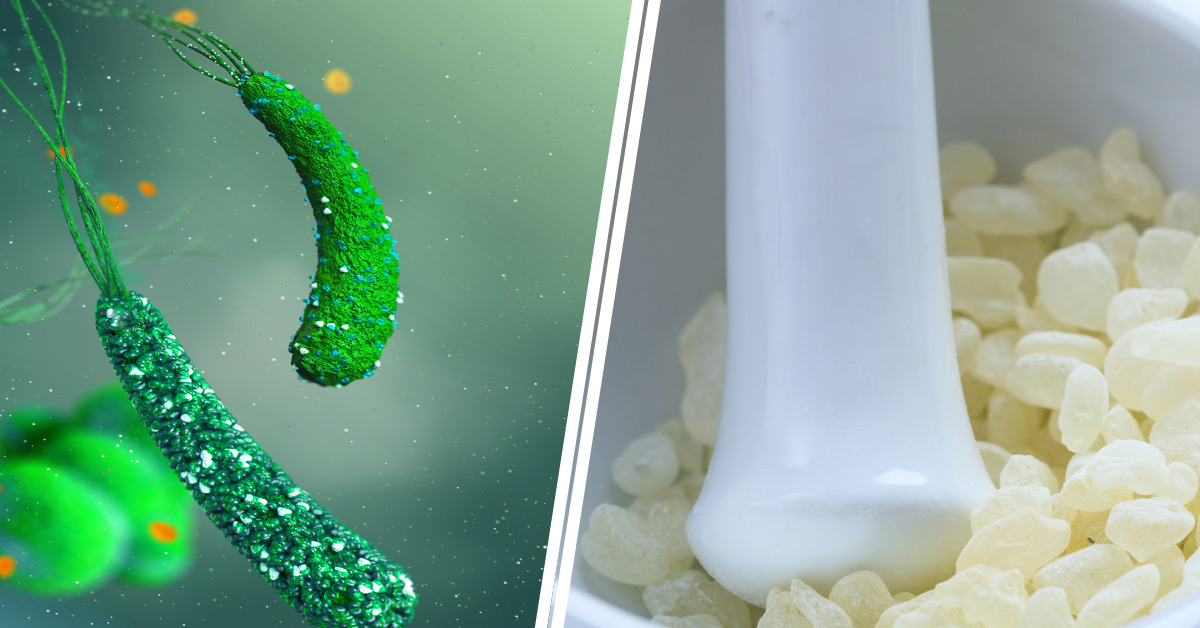WHAT HAPPENS TO OUR BODY WHEN WE CONSUME PROTEIN
The health benefits of it!

Helicobacter pylori (H. pylori or HP) is a gram-negative bacterium that plays a significant role in the pathogenesis of gastritis, peptic ulcers, and primary gastric lymphoma, also known as MALT lymphoma.
Additionally, this bacterium is potentially linked to gastric cancer, as it can cause changes associated with atrophy and intestinal metaplasia in the stomach lining.
Helicobacter pylori has a helical shape and possesses two to seven flagella at one pole, which enable it to move through the gastric mucosa.
It is microaerophilic (anaerobic but capable of tolerating low oxygen levels) and produces an enzyme called urease. This enzyme is crucial for the bacterium’s survival because it breaks down urea into ammonia and carbon dioxide, neutralizing the stomach’s gastric acid and allowing the bacterium to survive in the acidic environment.
ACTION AGAINST HELICOBACTER PYLORI
Since ancient times, in the 1st century AD, Dioscorides mentioned that mastic resin possesses therapeutic properties, helping with indigestion, chronic cough, hematological problems, and acting as a calming agent.
From then until the 7th century AD, physicians and herbalists used Chios Mastic for indigestion, gastric pain, and peptic ulcers.
Today, laboratory and clinical studies published in international medical journals have demonstrated that the resin of Chios Mastic has bioactive therapeutic properties, eradicating Helicobacter pylori, which is responsible for 75% of peptic ulcer cases and 90% of duodenal ulcer cases.
The essential oil of mastic plays a very important role by providing antimicrobial and antioxidant properties. In a study conducted at the Medical Microbiology Laboratory of the Hellenic Pasteur Institute in May 2002, it was shown that administration of Chios Mastic to mice infected with Helicobacter pylori significantly reduced the bacterial colonization, although no significant reduction was observed in the severity or activity of the associated gastritis.
Similarly, in 2002, a clinical study published by the South Korea Society of Gastroenterology from Dankook University’s Medical School in South Korea demonstrated the effect of mastic against gastritis caused by Helicobacter pylori.
In 1998, a landmark study published in the prestigious New England Journal of Medicine by Nottingham University Hospital in the UK concluded that Chios Mastic has a clearly proven action against Helicobacter pylori. It was able to kill the NCTC 11637 strain and six additional clinical isolates, including three strains sensitive and three resistant to metronidazole, using fresh tissue samples of the bacterium isolated from infected patients.
The study also determined the minimum bactericidal concentration required to eradicate 99.9% of Helicobacter pylori within 24 hours (60 μg/ml). These results demonstrated that mastic successfully eradicated Helicobacter pylori in all samples tested, regardless of bacterial load.